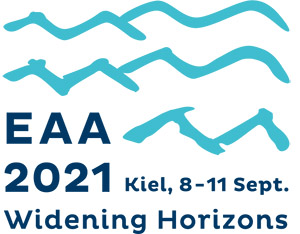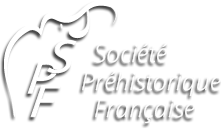 Actualités
Actualités 
Congrès, colloques, réunions - Appel à contributions / Call for papers
8-11 septembre 2021
Kiel
 Session 491 - 27th Annual Meeting of the European Association of Archaeologists : Widening Horizons
Session 491 - 27th Annual Meeting of the European Association of Archaeologists : Widening Horizons
The identification and the distribution of a range of human activities performed in domestic areas and their immediate surroundings rely on a variety of archaeological datasets and methodological approaches. From the analyses of architectural form and layout to the distribution of artefacts in that space, archaeological research investigates peoples’ activities within inhabited spaces, as well as the social and cultural divisions visible within these spaces. Nevertheless, assessing the functional characterization of space in dwellings and workshops may not be straightforward. An implicit distinction between working and living spaces might not have occurred and living spaces could have been used for a variety of functions. Moreover, valuable invisible evidence in the archaeological record requires interdisciplinary scientific approaches to properly investigate it. Limitations to our knowledge of the different activities performed in domestic spaces can be due to the perishable nature of some artefacts and architectural features, to the intentional maintenance and modification of spaces, to the nature of abandonment and to the destruction or post-depositional events. All these factors may heavily affect the archaeological record of various activities performed in inhabited spaces. This session invites papers investigating and discussing the use of multi-functional domestic contexts in the Mediterranean from the Neolithic to the Late Medieval periods, with the aim of debating on complementary methods of research to tackle the comprehension of space use. Interdisciplinary papers can approach the topic through distributional models of artefacts and ecofacts, micro-archaeological scientific approaches, architectural and spatial analysis, and ethnographic comparisons. The overall aim of this session is to bring together complementary and decisive datasets from interdisciplinary and cross-cultural research environments to embrace a methodological debate on the different approaches in the investigation of the various activities performed in domestic spaces.
Main organiser:
Rossana Valente (Greece)
Co-organisers:
Laura Magno (Belgium)
Katerina Ragkou (Germany)
Katherine Harrington (United States)
Call for oral and poster contributions is now open - deadline for submitting an abstract is 11 February 2021


